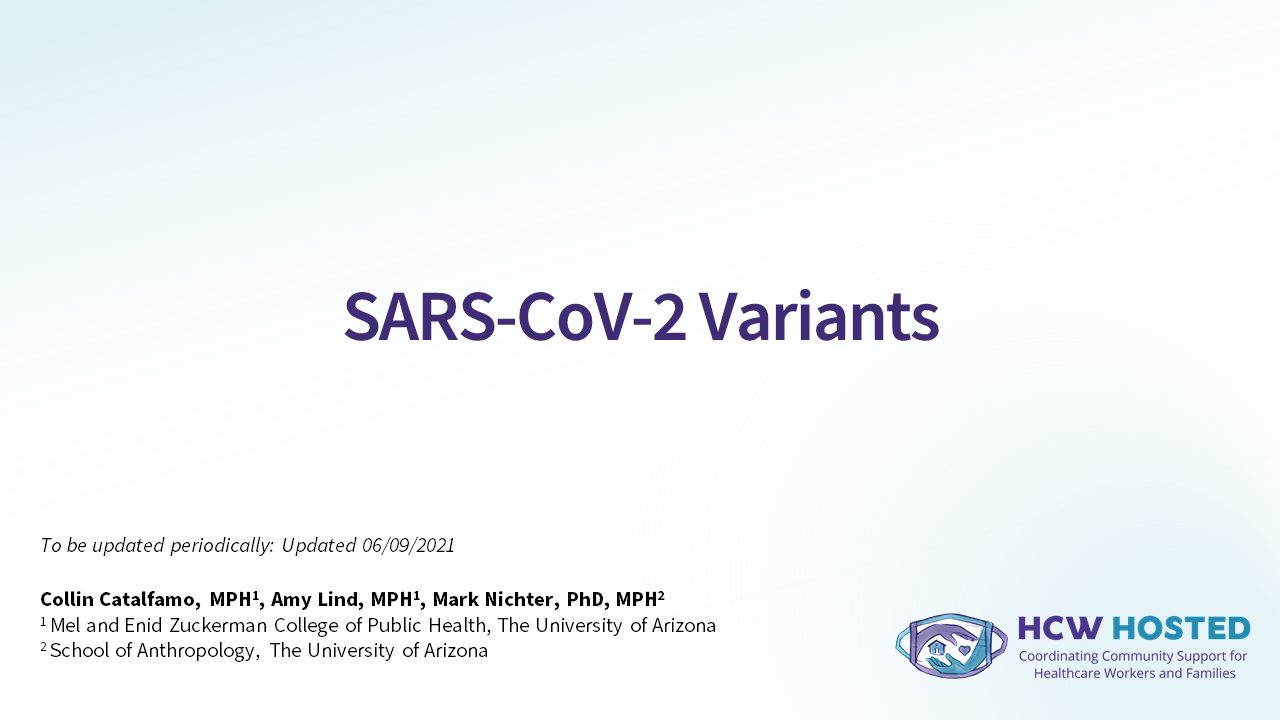Last updated by our Medical Anthropology & Epidemiology Team on 06.09.2021
When a person is infected with a virus, the virus makes copies of itself in the host in a process called viral replication. This process is not perfect, and newly-synthesized viruses can pick up small mutations in their genetic code. These mutations can benefit or harm the virus’ ability to be transmitted or cause disease.
When there is unrestricted or high levels of viral transmission, viruses have greater chances of accumulating mutations and developing into variant strains. Due to the sheer number of COVID-19 infections across the globe, SARS-CoV-2 has developed variants. We must pay close attention to these variants because they have the potential to cause re-infections in our communities, reduce vaccine efficacy, and ultimately prolong the COVID-19 pandemic. You should assume that SARS-CoV-2 variants are already circulating in your community and act accordingly, continuing to follow public health safety guidelines.
Some SARS-CoV-2 variants have demonstrated increased transmissibility, but research is needed to understand how certain viral mutations affect severity of illness. Just remember: even if a variant proves to not cause a more severe COVID-19 disease, it is still of concern because it could result in increased healthcare utilization and excess mortality from the higher volume of COVID-19 cases requiring medical intervention.
Four primary variants of concern have been identified so far:
-
- Variant B.1.1.7 (Alpha) was identified in the United Kingdom in December 2020 and has since been documented in over 30 countries. This variant has higher than average transmissibility.
- Variant B.1.351 (Beta) was identified in South Africa in October 2020 and was detected in the United States in January 2021. This variant has the potential to engage in antibody escape, meaning it may be able to evade some immune system mechanisms.
- Variant P.1 (Gamma) has spread considerably in Brazil and is considered to have an unusually high number of mutations. This variant may be associated with reinfection, meaning those who previously contracted a different strain of COVID-19 could become ill with COVID-19 again with this variant strain.
- Variant B.1.617.2 (Delta) was first identified in Southern Asia and India in December 2020. It appears to have increased transmissibility compared to B.1.1.7; however, it is unclear whether it results in more severe COVID-19 disease. This variant has the potential to engage in antibody escape.
Vaccines that have been given Emergency Use Authorization are still effective against COVID-19 because they elicit an immune response that combats SARS-CoV-2 across all regions of its spike protein. This makes it hard for the virus to escape the immune system, even if some variants have been identified to have potentially increased resistance against current vaccines and treatments.
It is possible to become infected with a SARS-CoV-2 variant after being fully vaccinated or after recovering from COVID-19 illness; however, it is currently understood to be highly unlikely if fully vaccinated.
For more detailed information regarding variants of the virus that causes COVID-19, view our presentation on this topic below.

